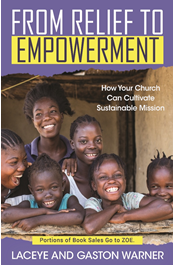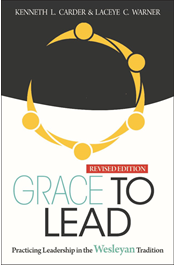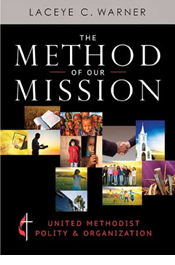- Online Learning
-
- Advent
- Bible Study
- Caregiving
- Children
- Clergy & Laity
- Companions in Christ
- Creativity
- Devotional
- Discipleship
- Generosity
- Grief
- Healing & Wholeness
- Hospitality
- Legacy
- Lent
- Men
- Missions
- Older Adults
- Pentecost
- Prayer
- Recovery
- Series
- Social Justice
- Spiritual Gifts
- Spiritual Practice
- Stewardship
- Women
- Young Adults
- Youth
Laceye C. Warner
Showing 1 - 3 of 3 results
From Relief to Empowerment
How Your Church Can Cultivate Sustainable Mission
Laceye C. Warner, Gaston Warner
Move mission beyond "us and them" to "all of us together."
Mission flourishes when relationships are characterized by mutuality—a difficult, but important, balance to sustain. While there are times for the relief efforts and traditional charity when disasters strike, if years later the same people are receiving the same aid, an opportunity is lost. Mission that moves beyond relief to empowerment opens up ways to address systemic forms of oppression and poverty. Suitable for group study, this ...
Grace to Lead
Practicing Leadership in the Wesleyan Tradition, Revised Edition
Kenneth L. Carder, Laceye C. Warner
A Wesleyan Guide to Leadership. Designed specifically for Christian leaders and teachers, Grace to Lead: Practicing Leadership in the Wesleyan Tradition, Revised Edition delves into Wesleyan scholarship to guide readers into effective contemporary leadership, from a solidly Wesleyan perspective. Calling upon insights from the 1700s Wesleyan revival in England, authors Carder and Warner motivate, form, and guide church leaders. The revised edition expands the content of the first edition and i...
The Method Of Our Mission
Laceye C. Warner
Theology shapes who we are and how we organize to transform the world. Especially written for required United Methodist classes, this accessible book uses a Wesleyan theological frame—connection—to help readers understand United Methodism's polity and organization as the interrelationship of our beliefs, mission, and practice. The book is organized into four parts—United Methodist beliefs, mission, practice, and organization. Polity and organization are primary embodiments of The United Metho...


